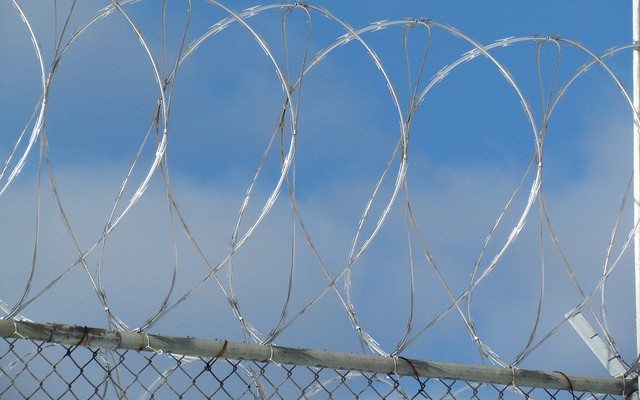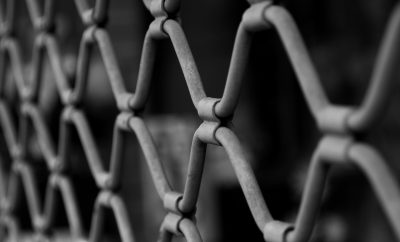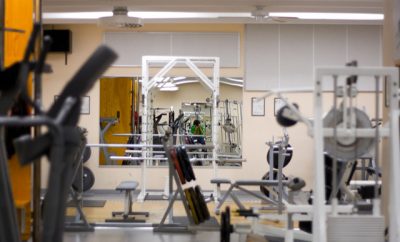 Image courtesy of [Kate Ter Haar via Flickr]
Image courtesy of [Kate Ter Haar via Flickr]
Law
Children of Incarcerated Parents: What Are Their Rights?
Since 1981, the number of children of incarcerated parents has increased by an extremely dramatic 80 percent. Along with the more than 50 percent increase in the number of incarcerated women–75 percent of whom are mothers–well over half of all adults incarcerated in state and federal prisons today have at least one child under the age of 18.
Though the numbers are grim, they are far from the whole story. How does mass incarceration affect children of incarcerated parents, and how have these children come together to advocate for their needs?
Consequences of Parental Incarceration for Children
Having a parent in prison can have an impact on a child’s mental health, social behavior, and educational prospects. The emotional trauma that may occur and the practical difficulties of a disrupted family life can be compounded by the social stigma that children may face as a result of having a parent in prison or jail. Children who have an incarcerated parent may experience financial hardship that results from the loss of that parent’s income. Further, some incarcerated parents face termination of parental rights because their children have been in the foster care system beyond the time allowed by law.
Unlike children of the deceased or divorced who tend to benefit from society’s familiarity with and acceptance of their loss, children of the incarcerated too often grow up and grieve under a cloud of low expectations and amidst a swirling set of assumptions that they will fail, that they will themselves resort to a life of crime or that they too will succumb to a life of drug addiction.
However, any possibility of even visiting parents is often severed due to the devastating impacts of the Adoption and Safe Families Act. This federal law mandates the forcible termination of parental rights after a child has been in foster care for more than 15 months. Many advocates, children, and their incarcerated parents actively object to this act because of the ways that it “tear[s] families apart.” Because of mandatory minimum drug sentencing laws that mandate 36-month sentences, which mothers of color are disproportionately punished by, this act forces the State to take away children from their parents permanently, regardless of children or parental consent.
Children Fighting Back
- I have the right to be kept safe and informed at the time of my parent’s arrest.
- I have the right to be heard when decision are made about me.
- I have the right to be considered when decisions are made about my parent.
- I have the right to be well cared for in my parent’s absence.
- I have the right to speak with, see, and touch my parent.
- I have the right to support as I struggle with my parent’s incarceration.
- I have the right not to be judged, blamed, or labeled because of my parent’s incarceration.
- I have the right to a lifelong relationship with my parent.
- I have the right to be kept safe and informed at the time of my parent’s arrest: (1) Develop arrest protocols that support and protect children; (2) Offer children and/or their caregivers basic information about the post-arrest process.
- I have the right to be heard when decisions are made about me: (1) Train staff at institutions whose constituency includes children of incarcerated parents to recognize and address these children’s needs and concerns; (2) Tell the truth; (3) Listen.
- I have the right to be considered when decisions are made about my parent: (1) Review current sentencing law in terms of its impact on children and families; (2) Turn arrest into an opportunity for family preservation; (3) Include a family impact statement in pre-sentence investigation reports.
- I have the right to be well cared for in my parent’s absence: (1) Support children by supporting their caretakers; (2) Offer subsidized guardianship.
- I have the right to speak with, see, and touch my parent: (1) Provide access to visiting rooms that are child-centered, non-intimidating, and conducive to bonding; (2) Consider proximity to family when siting prisons and assigning prisoners; (3) Encourage child welfare departments to facilitate contact.
- I have the right to support as I face my parent’s incarceration: (1) Train adults who work with young people to recognize the needs and concerns of children whose parents are incarcerated; (2) Provide access to specially trained therapists, counselors, and/or mentors; (3) Save five percent for families.
- I have the right not to be judged, blamed, or labeled because my parent is incarcerated: (1) Create opportunities for children of incarcerated parents to communicate with and support each other; (2) Create a truth fit to tell; (3) Consider differential response when a parent is arrested.
- I have the right to a lifelong relationship with my parent: (1) Re-examine the Adoption and Safe Families Act; (2) Designate a family services coordinator at prisons and jails; (3) Support incarcerated parents upon reentry; (4) Focus on rehabilitation and alternatives to incarceration.
These action plan outlines are both based on and serve as a basis for the continued organizing of the children and young adults directly impacted by having incarcerated parents. Project WHAT!, based in California, is a youth-led organization that plays a prominent role in advocating for their own needs. According to their website:
Led by youth who have had a parent incarcerated, Project WHAT! raises awareness about children with incarcerated parents with the long-term goal of improving services and policies that affect these children. WHAT! stands for We’re Here And Talking, which is exactly what the team is doing. Over seven million children have a parent on parole, probation, or incarcerated. The program employs young people who have experienced parental incarceration as the primary curriculum content developers and facilitators for trainings.
By directly employing youth in their advocacy efforts, Project WHAT! utilizes both long-term advocacy and direct-action strategies. By striving toward long-term goals–like the ones described above–while offering short-term assistance–immediately empowering youth and children through both their programming and their paid employment opportunities–Project WHAT! is a prime example of youth-led organizing across the country. Indeed, children of incarcerated parents in Michigan have also organized to open their own chapters of Project WHAT!.
So where are we now?
Children of incarcerated parents are uniquely impacted by the criminal justice system, even when they are not, themselves, incarcerated. From emotional and psychological trauma, to increased poverty, to being separated permanently from their parents without parent or child’s consent, mass incarceration devastates many of the children whose parents are incarcerated. However, coalitions of children like Project WHAT! are working to ensure that their needs are met, even if the criminal justice system is not interested in meeting them.
Resources
Osborne Association: Children of Incarcerated Parents: A Bill of Rights
Rhonda L. Rosenthal, PC: Severing the Parental Rights of Inmates
California Watch: Number of Children With Parent in Prison Growing
IndiGoGo: Project WHAT! Building a Youth-Led Movement for Prison Reform in Michigan
Community Works: Project WHAT!
San Francisco Children of Incarcerated Parents: From Rights to Realities
Annie E. Casey Foundation: Children of Incarcerated Parents Fact Sheet
Youth.gov: Children of Incarcerated Parents
U.S. Department of Health and Human Services: The Effects of Parental Incarceration on Children








Comments